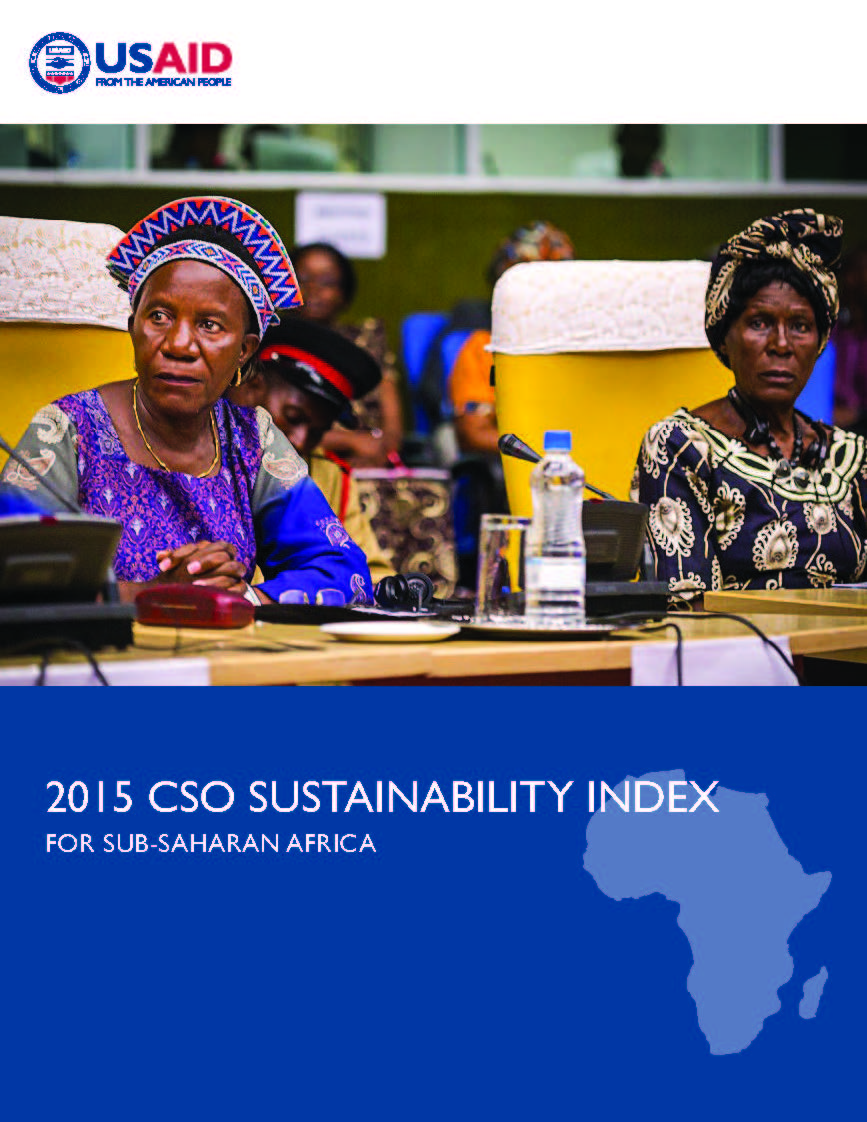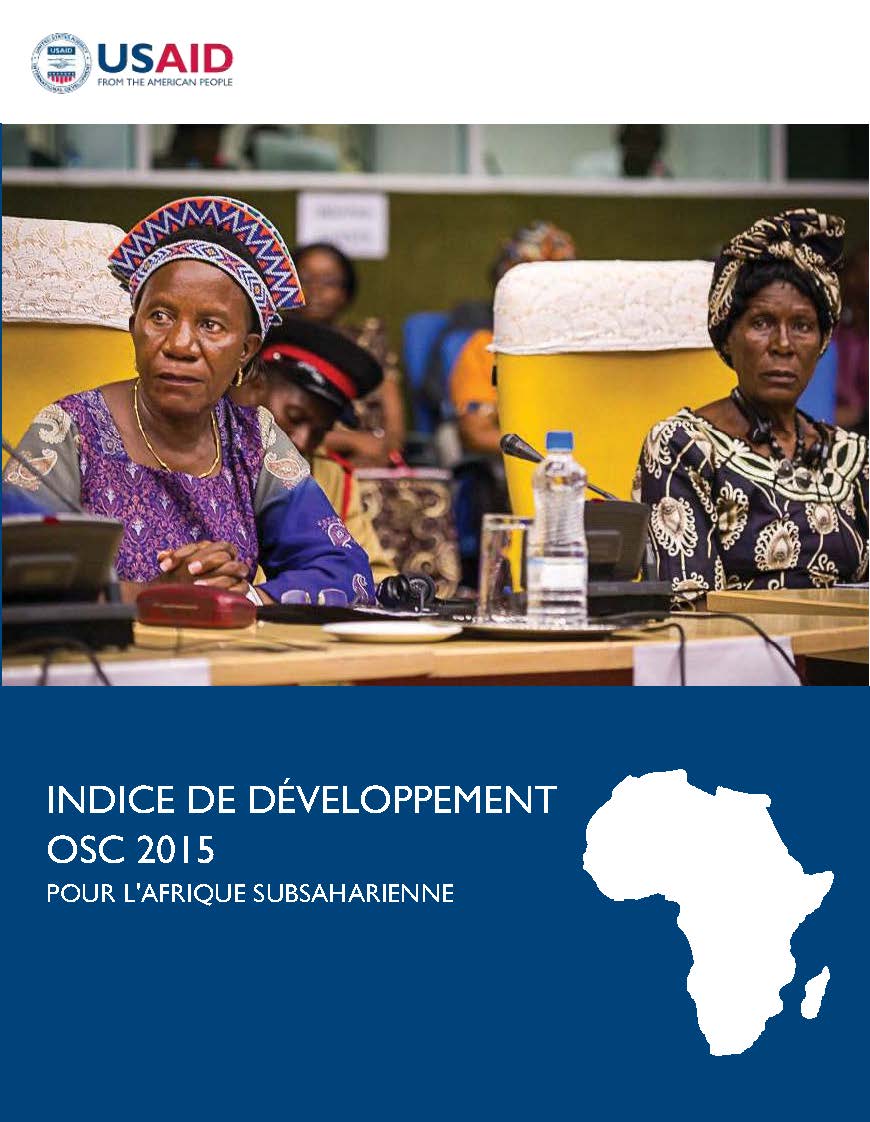- What We Do
- Agriculture and Food Security
- Democracy, Human Rights and Governance
- Democracy, Human Rights and Governance Strategy
- Supporting Free and Fair Elections
- Supporting Vibrant Civil Society & Independent Media
- Protecting Human Rights
- Promoting Accountability & Transparency
- Importance of Democracy, Human Rights, & Governance to Development
- Countering Trafficking in Persons
- Economic Growth and Trade
- Education
- Ending Extreme Poverty
- Environment and Global Climate Change
- Gender Equality and Women's Empowerment
- Global Health
- Water and Sanitation
- Working in Crises and Conflict
- U.S. Global Development Lab
BACKGROUND
The Civil Society Organization Sustainability Index (CSOSI) has been used by USAID since 1997 to assess the sustainability of the CSO sector in 29 countries in Europe and Eurasia. The CSOSI was first applied in sub-Saharan Africa in 2009. In 2011, the CSOSI tool was further applied to seven countries in the Middle East as well as Afghanistan and Pakistan. The Aga Khan Foundation funds CSOSI in the latter two countries as well as in two countries in sub-Saharan Africa. The CSOSI is used by CSO advocates, other development partners, and academics to assess international and regional trends in the civil society sector and to identify common obstacles impeding the sector’s sustainability, such as the legal environment, organizational capacity, and financial viability, as well as to track areas where sustainability has improved.
APPROACH
The CSOSI measures the sustainability of each country’s CSO sector based on the CSOSI’s seven dimensions: legal environment, organizational capacity, financial viability, advocacy, service provision, infrastructure, and public image. The CSOSI’s implementing partners in each country lead the process of organizing and convening a diverse and representative panel of CSO experts. Country panels discuss the seven dimensions for the year being assessed and reach consensus on the scores corresponding to each dimension. The scores are organized into three basic categories representing the level of development of the civil society sector: Sustainability Impeded; Sustainability Evolving; and Sustainability Enhanced. All scores and narratives are then reviewed by a Washington-based editorial committee, assisted by regional civil society experts.
FINDINGS
The year 2015 had notable highs and lows for the civil society sector in sub-Saharan Africa. Among the bright spots was the victory over the lethal Ebola epidemic. CSO staff and volunteers in Guinea, Liberia, and Sierra Leone showed resilience and courage as they worked as respected partners alongside communities, governments, and international agencies to battle the disease. CSOs also often performed key roles in the election process in 2015 in countries such as Burkina Faso, Ethiopia, Guinea, Madagascar, Namibia, Nigeria, Tanzania, and Zambia, despite some encounters of state-sponsored barriers to their election-related activities. A number of countries covered in this year’s Index marked important political and economic gains. For example, Ethiopia continued to make strides in reducing poverty and child mortality, Botswana continued to achieve a primary school enrollment of more than 90 percent, and Côte d’Ivoire maintained an average annual GDP growth rate of 8.3 percent. While CSOs have played an important role in these achievements, economic decline continued to impose suffering on many populations throughout the region, making the work of CSOs both more vital and more difficult. Escalating political strife, including violent protests and terrorist attacks, also marked the year 2015 in several countries including Kenya, Nigeria, Sudan and Mali. Such tensions often impeded the work of both advocacy and service- providing CSOs, but many showed great resilience and courage in meeting the needs and defending the rights of target populations. As in previous years, funding was still the most serious challenge facing CSOs throughout the region. Nearly all country reports note that foreign donors continued to withdraw or cut back their assistance, while local support, whether from the government, private sources, or CSOs’ own income-generating activities, was far from sufficient to fill-in the gap. Within this dynamic environment, CSO sustainability remained fairly stable in 2015. Only six countries reflect changes in their overall sustainability scores, with two showing an improvement and four a decline.









Comment
Make a general inquiry or suggest an improvement.